Cartes de visite of Dickinson Class of 1868 Graduates:
- George Durbin Chenoweth
- Alexander Cook Chenoweth
- David Henry Carroll
- William Potter Davis
- Alexander Dallas Bache Smead
- William Trickett
- John Franklin Goucher
- John Emory Jones Buckey
- Isaac Collins Westy
- Henry Jacob Beatty
A full description can be found here.
A Note On Drop Files And J.F. Goucher:
John Franklin Goucher is arguably the most famous member of the graduating class of 1868, so there is a decent amount of material relating to him in the Dickinson Archives. A quick search in the Archives website brings up some of the more notable artifacts, including a fraternity pin and a transcribed speech at a conference on Christianity in the U.S. The actual archives, however, can be daunting; when I first arrived, I was too intimidated to make use of many of its resources and instead asked one of the archivists for any information she could bring on him.
This led me to the drop file on Goucher; a catch-all collection of documents deemed not important enough to warrant their own entries. These include three newspaper obituaries, most with a heavy focus on Goucher’s career as founder and president of the college named for him, several handwritten notes addressed to Mrs. Goucher expressing condolences for his death, and a biography written by a Goucher College student who graduated in 1931.
In hindsight, John Franklin Goucher’s position as head of another college means that there is another institution with an equal or greater claim to many of his personal effects and correspondence, something that undoubtably affects the Dickinson Archives collection on him and his wife, dependent as that collection is on the whims of Goucher’s descendants or others in the chain of custody.
Also, drop files, while sometimes containing overlooked scraps that hold the key to future research– the letters to Mrs. Goucher, for example– are equally as likely to have nothing but passing mentions of a figure, or vague, general information one could more easily gather from an entry in the Dickinson Encyclopedia or an Alumni Record. Therefore I cannot recommend them as a starting point for archival research nor as a viable means of reaching information on a specific topic. More reliable methods are listed below.
The Chenoweth Brothers
Two other members of the class had unusual careers, according to the Dickinson College Alumni Record: George Durbin Chenoweth, and his brother, Alexander Crawford Chenoweth. Both were engineers. Alexander was at one point employed by a Peruvian general, and George worked for the Northern Pacific Railroad extensively. I started my search for documents on these two with the main card catalog in the Archives–a filing cabinet of sorts, alphabetically organized with the names of people and some of the artifacts concerning them. There are entries for George Davenport Chenoweth, the father of the two, and George Durbin, but none for Alexander. I asked Frank, the archival assistant, for the contents of George’s card.
There is some documentation of George’s time with the Railroad through various certificates, as well as a pamphlet from his campaign for congressman as a member of the Progressive Party. There is also an entire file dedicated to his correspondence as a member of the Dickinson Board of Trustees, with notes explaining various absences and his resignation due to health issues.
- Railroad Certificate
- Campaign Pamphlet
- Letter of Resignation
After sifting through these for about 30 minutes, I decided to return to the mystery of Alexander Crawford Chenoweth. He had no entry in the card catalog, and there was no drop file on him, either. I enlisted the help of Frank again, but he could find nothing on Alexander in the collections. He did bring me a book with a list of the graduates of 1868: 
Wherein I discovered that Alexander Crawford was actually Alexander Cook.
This discovery didn’t turn up any new information on Alexander, even when I ran the name change through both a general and collections search. There isn’t any finding aid for documents relating to “Chenoweth”. He doesn’t even appear in the Image Archives, save for his carte de visite. I did find him and his brother in a list of Honorary Degree Recipients– Alexander received an Honorary Doctor of Laws in 1908, and George a Doctor of Science the same year. This list is easily accessible online, though many of the documents I encountered during my research are not.
- George Durbin Chenoweth
- George Durbin Chenoweth
These photographs of George can only be seen in the physical archives.
In terms of important, “teachable” papers, the most time-efficient source is a quick document search on the Dickinson Archive Website. This will provide any documents the archivists found compelling enough to prioritize through digitization, if they haven’t been somehow overlooked. This is how I found the letter transcribed below.
The main card catalog is useful for locating documents on people that might not be available on the website, but entries are limited. Finding aids can vary in helpfulness and detail. While I was looking for information on Alexander Cook Chenoweth, I tried tracking him down through the records of the Belles Lettres Society, of which he was a member. In a series of white binders located on a shelf in the Archives, there are brief descriptions of documents concerning Dickinson’s various societies through the years, including Greek life. Unfortunately, not every year of records is preserved, so there are gaps in lists of information available.
Finding aids can be found online. This search tool on the Dickinson Archives Website, under “Guides to Resources” is a way to locate them. 
The search “grades” brings up the finding aid for Student Affairs/Registrar papers, 1783-1914, or RG 5/1, where one can find documents on grades, deportment, and multiple other categories of student life at the college.
Document Identification
Lewistown PA
July 15th 1863
Prof Marshal W.S.G
Dear Sir
Your last was duly read. I write from Lewistown as myself & family have been boarding here at Paleasy hotel for some three weeks. We were driven out of Carlisle by the rebels. We left on Thursday night at 9:00, the last train that left the place before the rebels entered. We gathered up our trunks only, left everything else; & when I returned I found all perfectly safe just as we left it, for which we are thankful. The rebels entered Carlisle in strong force, twelve thousand, on Saturday evening. They put their tent near the door of Dr. Johnson & the campus filled with men & tents. Officers sent in to Mrs. Johnson for their supper, she sent it to them. Next morning they sent for breakfast, but she declined. They then used the outer cookingstove & as her servants had run off, she made their servants cook for her. They placed a strict guard around their men, to prevent deserters & keep them from plundering. But early on Sat. morning, they detailed Officers and men to plunder & they were thieving all day on Sat, Ham, groceries & dry goods, shoes, etc. While Mr. Hollert was dying on one side end of his house they were robbing him and the others. Rob Moore had a few army shoes hid, some rebel sympathizers told them of the fact & they searched the house, then took him prisoner & forced a confession from him where the shoes were and took them. They had no respect to private property if it suited them. They received information on Monday morning, that the army of the Potomac had made an attack near Gettysburg. They left speedily. Then some four thousand militia from Harrisburg marched into Carlisle , on Tuesday morning of 6 Ocl in the evening just as they attacked their armies in the public square, the rebel army having planted their cannon in the road near Mr. Calvers, commenced shelling the town. This was then flying artillery after throwing a few shells they sent up a flag of truce to General Smith, to surrender the town, he refused; Judge Graham tried to get them to surrender, they commenced the battle & shelled the town until three Ocl in the morning when they left. They burned the Barracks and Gasshouse. One shell struck Dr. Henson’s house in front but did very little injury. One exploded in Dr. Johnson’s reading room doing very little damage, he was standing just outside in the hall. The family then went to the cellar & spent the night, where most of the town took refuge. It was an awful night.
This is a letter written by George Davenport Chenoweth, the father of Alexander Cook and George Durbin Chenoweth of the Dickinson Class of 1868, in 1863, the year before the two began their study at the college. It was addressed to a Professor Marshall, presumably a member of the Dickinson faculty.
The document seems primarily intended to inform its recipient of the goings-on in Carlisle at the time.
The letter is fragile, written on delicate paper that is clearly aged, and needs to be protected with a plastic covering. However, the writing is clearly legible, and the entire letter is intact. It is original, or at least highly unlikely to be a copy.
One can glean a lot of information from this item; it is most effective in conveying the events that conspired during the Confederate invasion of Carlisle, from the reaction of the town’s inhabitants, to the behavior and number of soldiers. It also provides an account of the effect the Civil War had on the Dickinson campus itself; men were camped here, and the commencement of 1863 was pushed forward so as to avoid their battle. There is also a brief mention of the battle at Gettysburg.
The letter raises questions of who exactly the sender and recipient were– it appears as though both had very close ties to the college. It would also be worth looking for photographs taken of Carlisle around this time, in order to see the aftermath of the mortars and gunfire, and if there was any significant destruction. Further accounts of the rebel occupation would be interesting as well, in terms of understanding more about the interactions between an army and the citizens of a small Pennsylvania town. There is talk of sympathizers, so the relationship might be more complicated than simple enmity.
Other items of interest would be letters from the Class of 1863 concerning how their graduation was effected, the letters or accounts of the Dickinson faculty in 1863, or any correspondence or diaries from younger people at the time of the war. The Dickinson Archives can be searched for mention of a Professor Marshal or George Davenport Chenoweth.
Citation

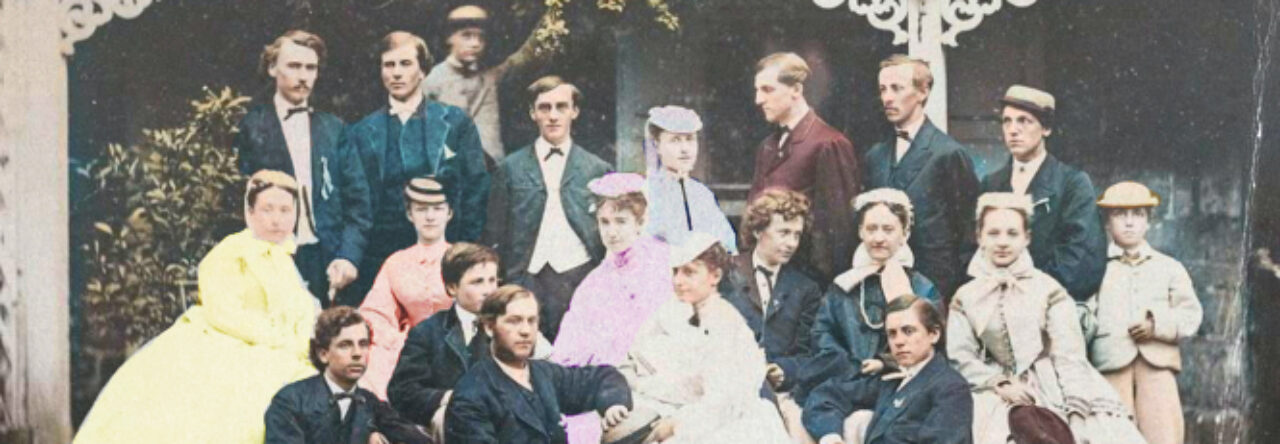
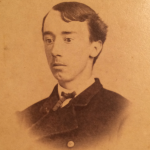
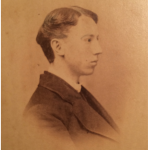
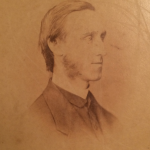
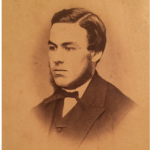
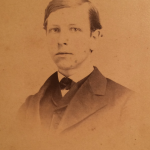
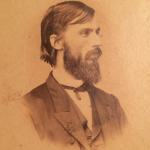
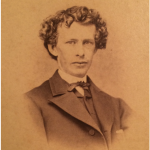
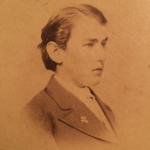
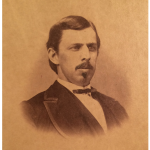
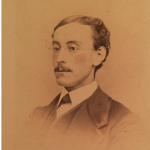


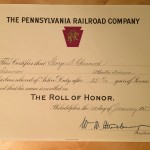
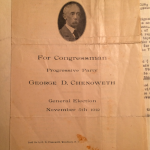
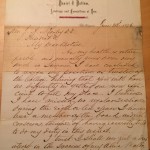
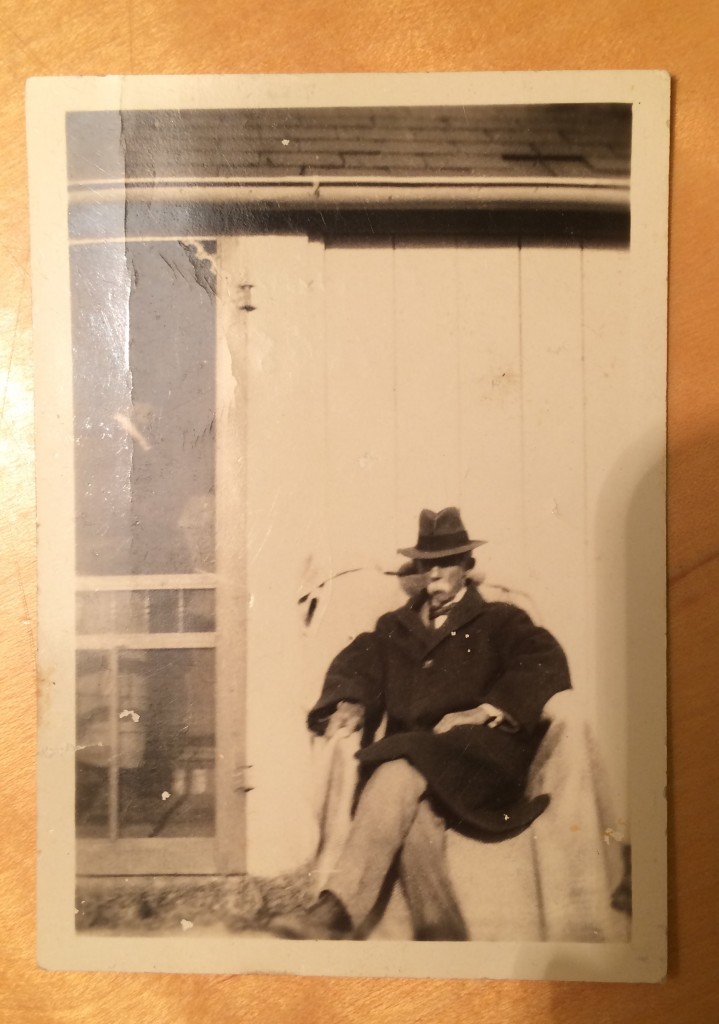
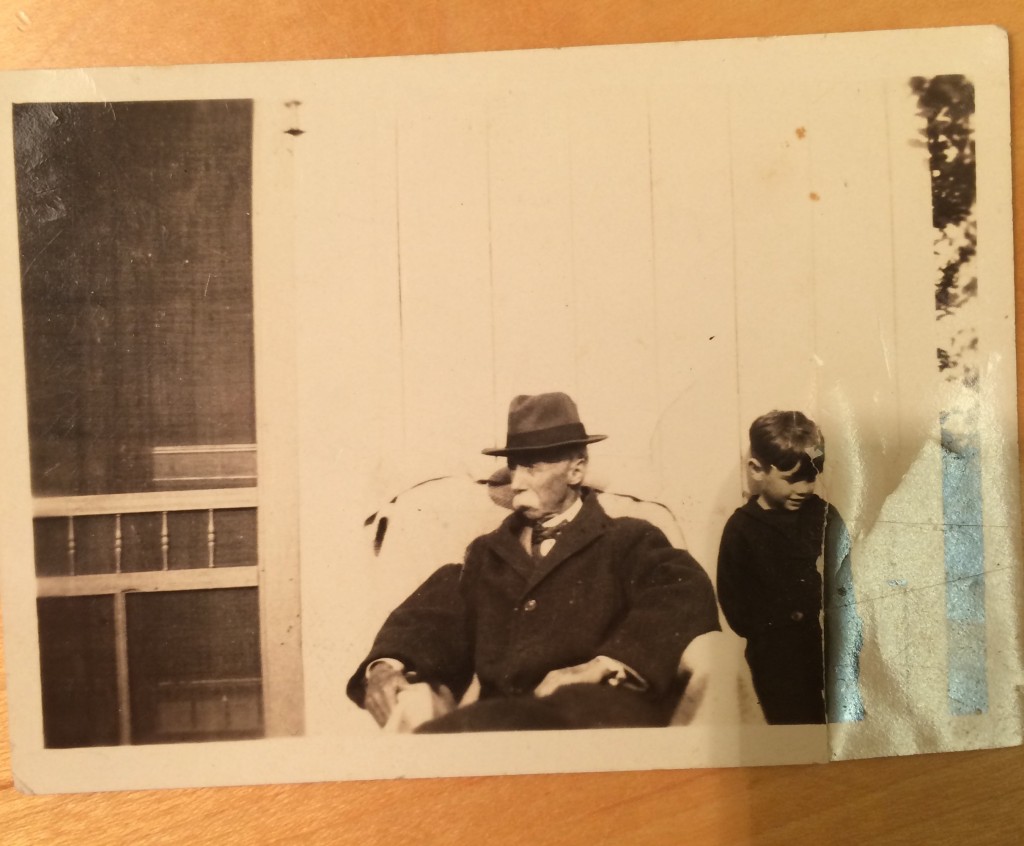

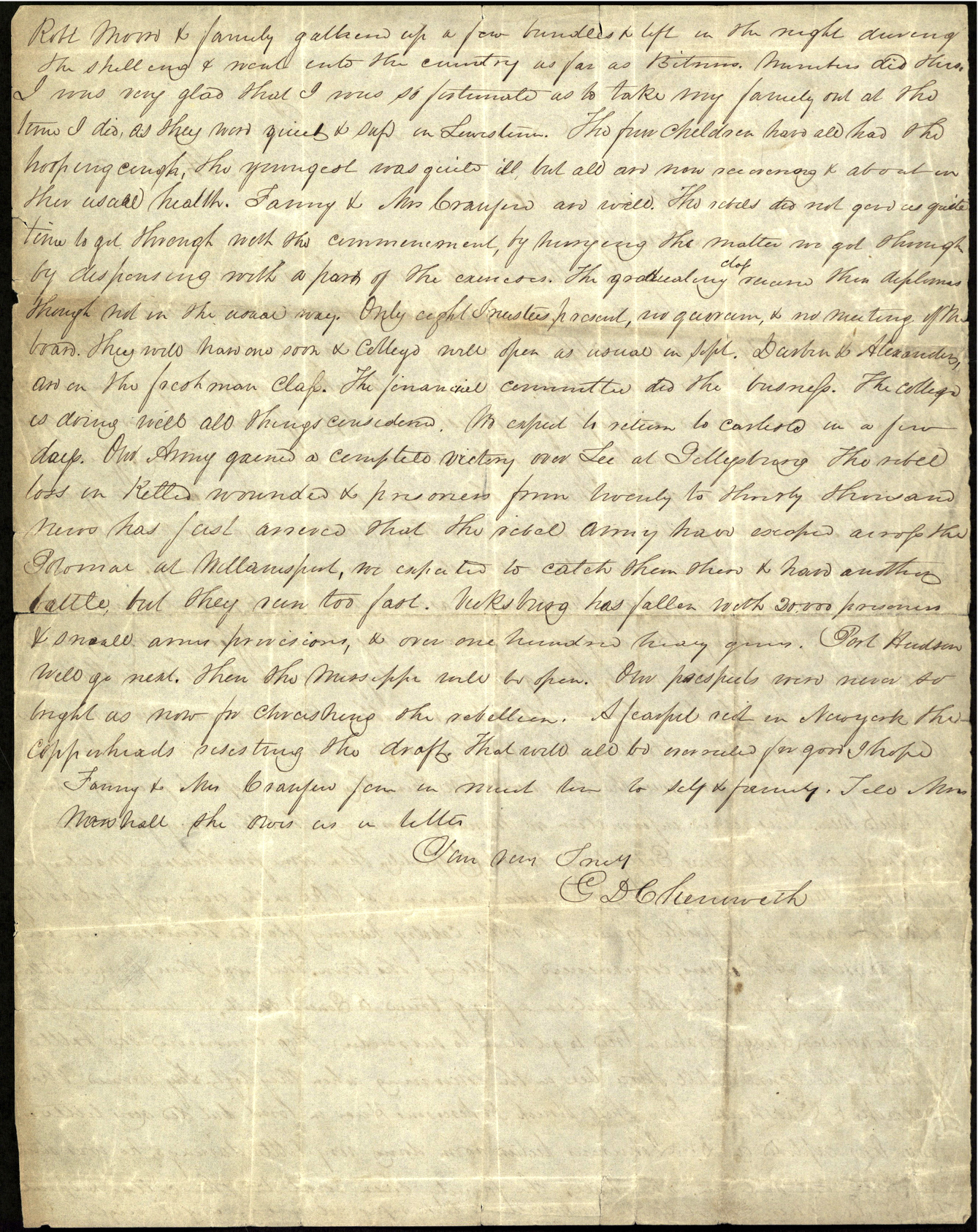
Leave a Reply